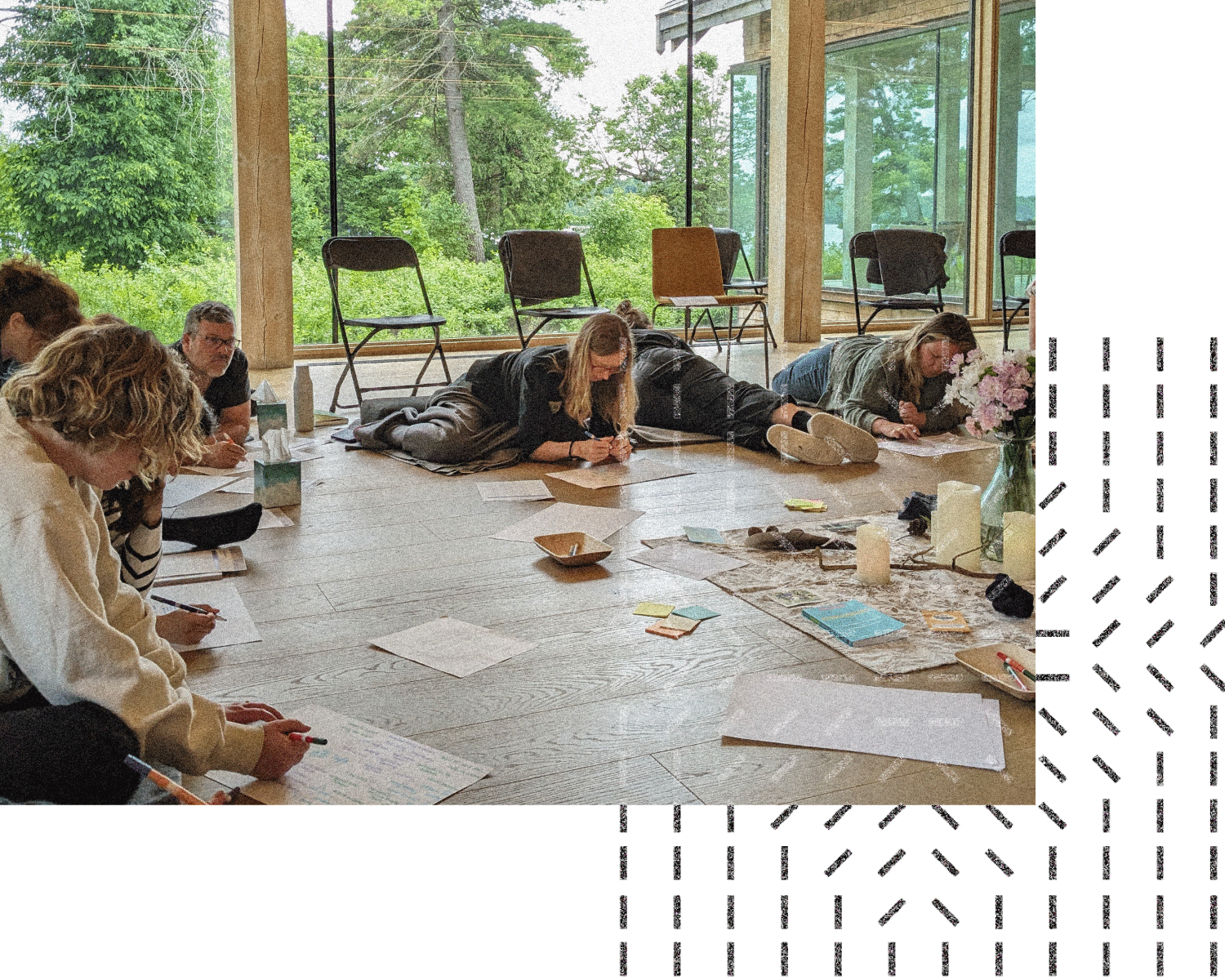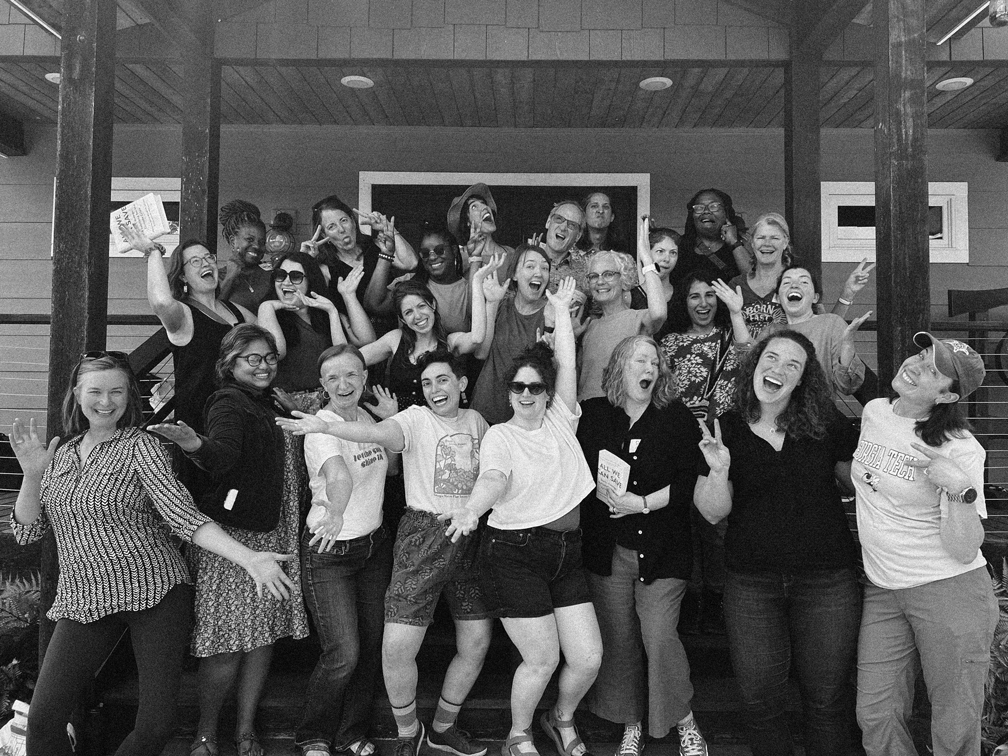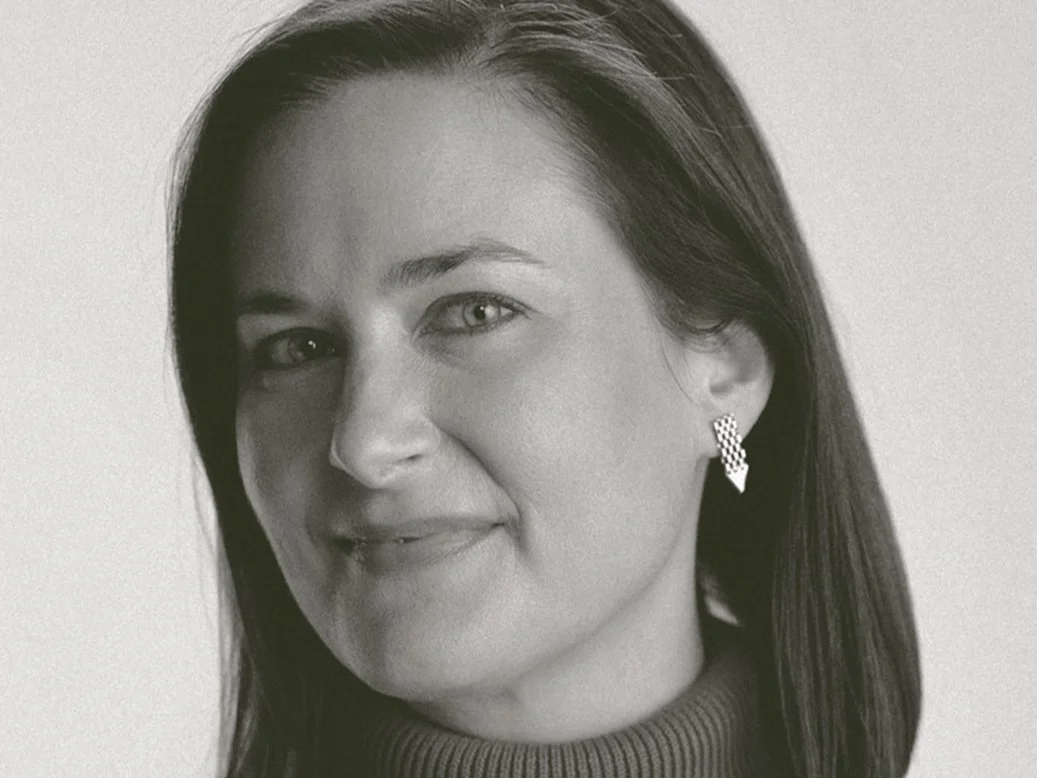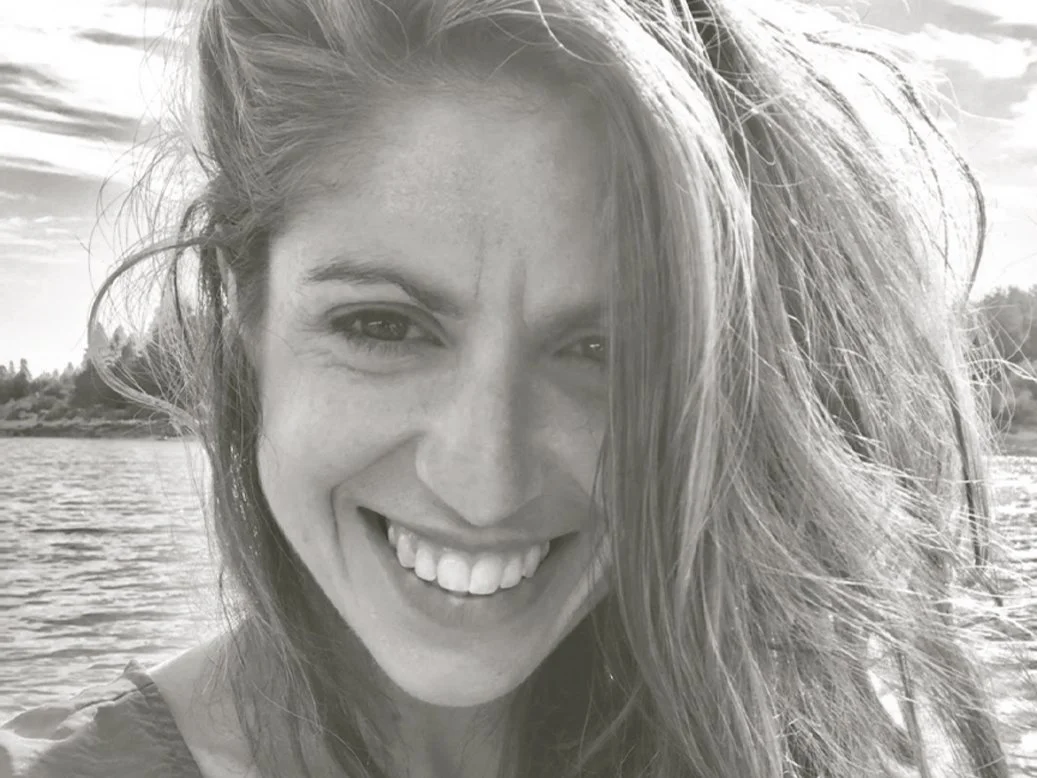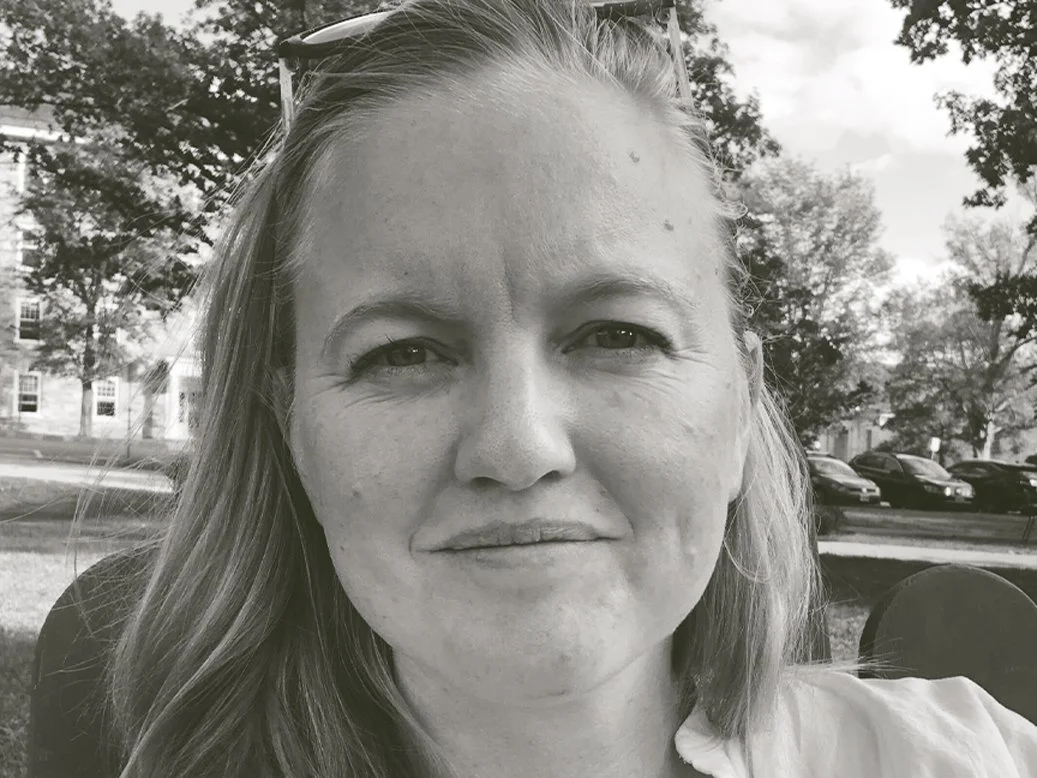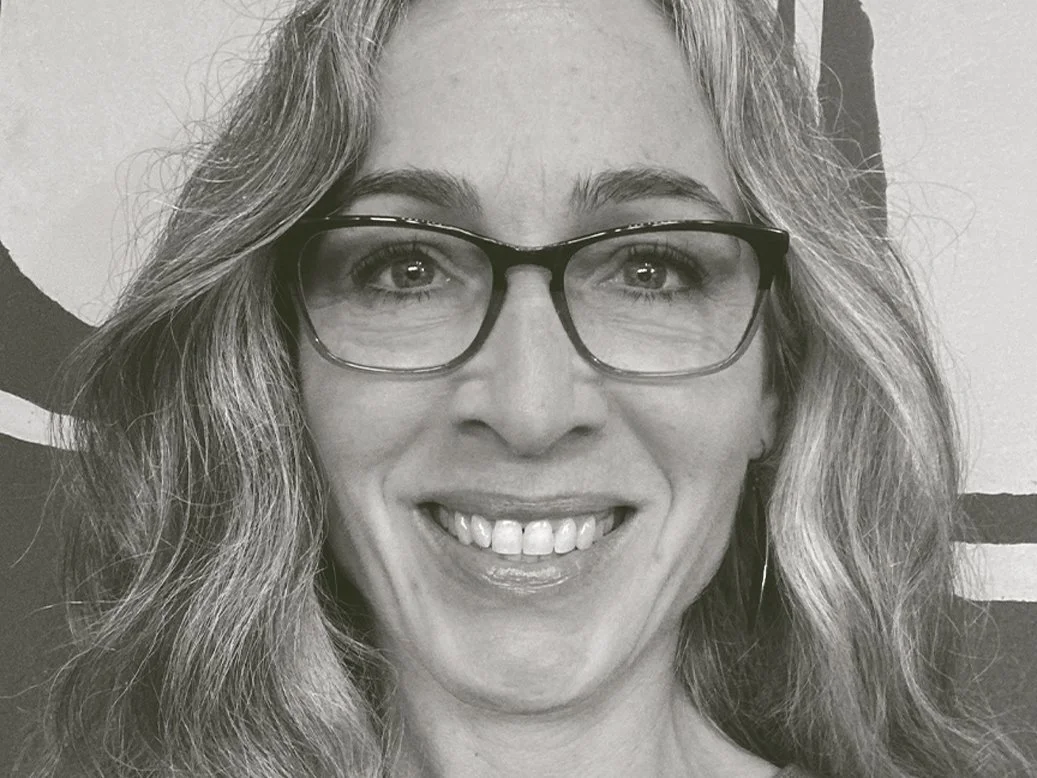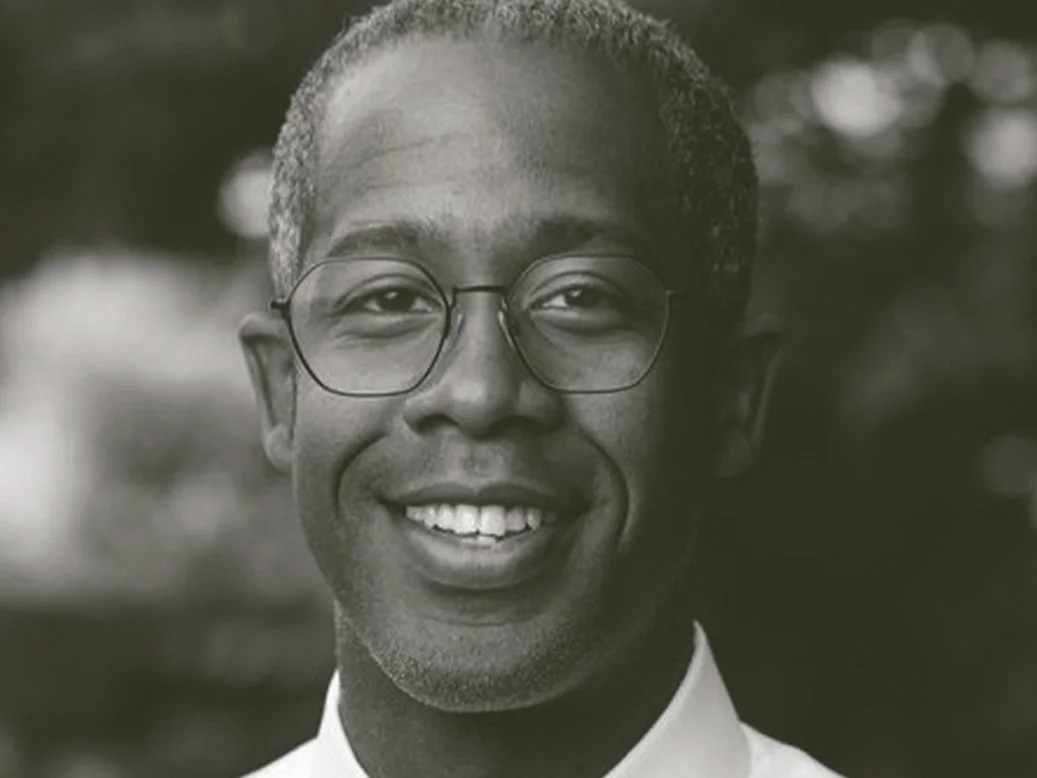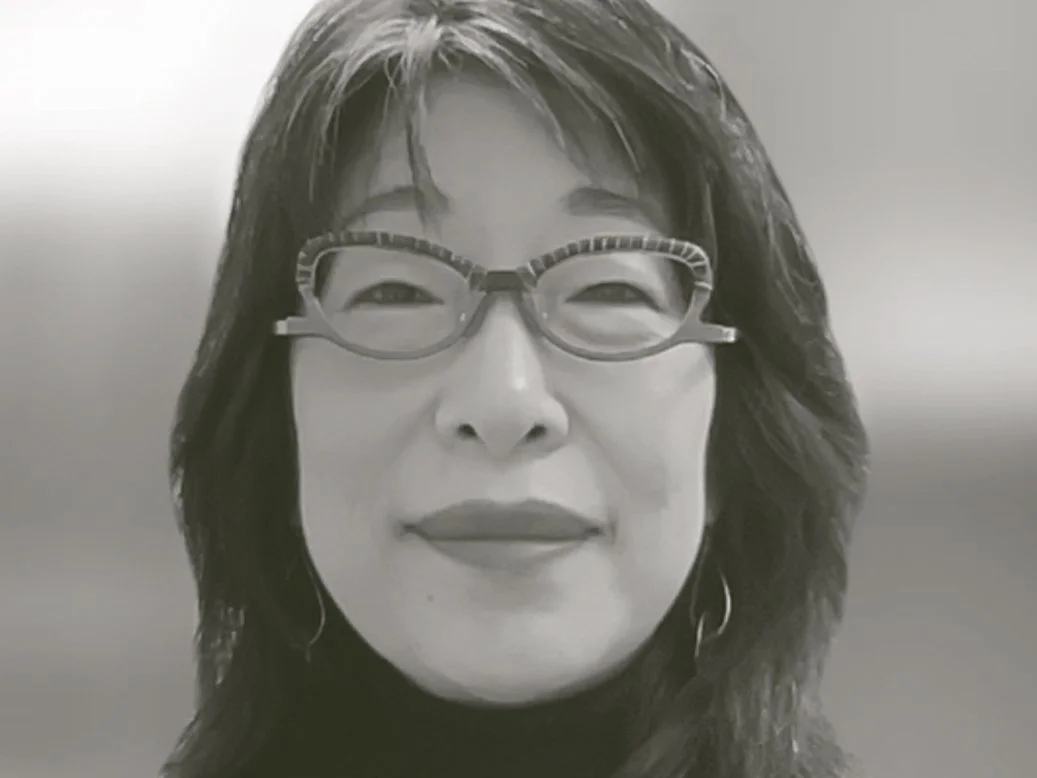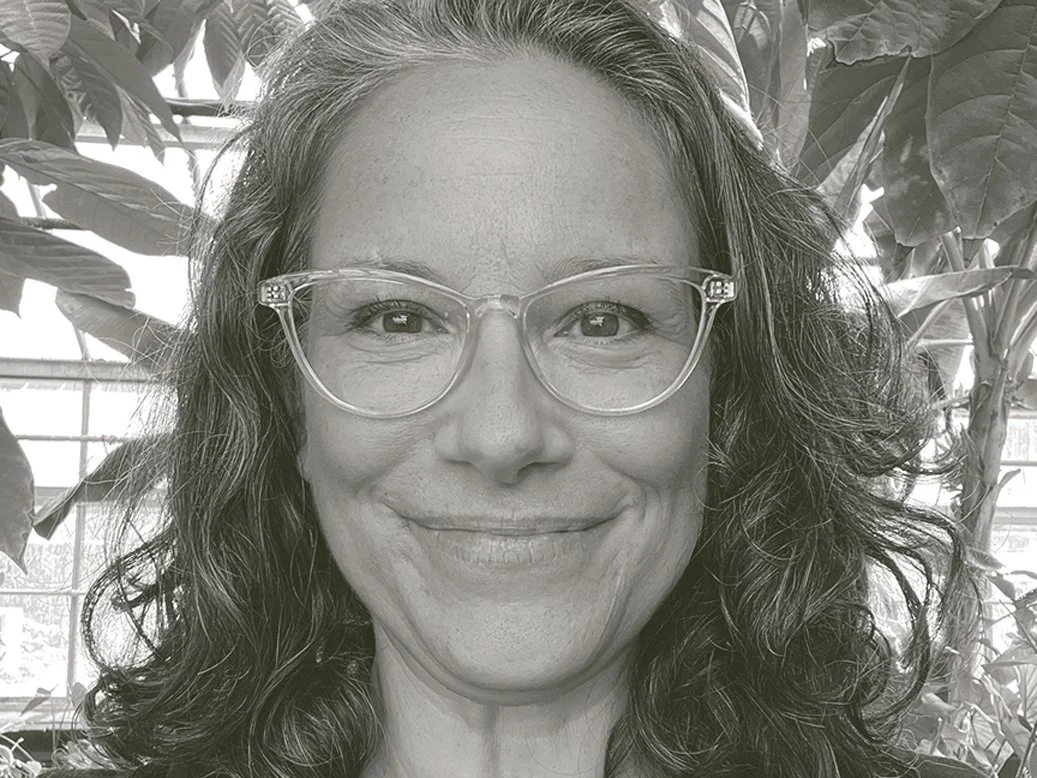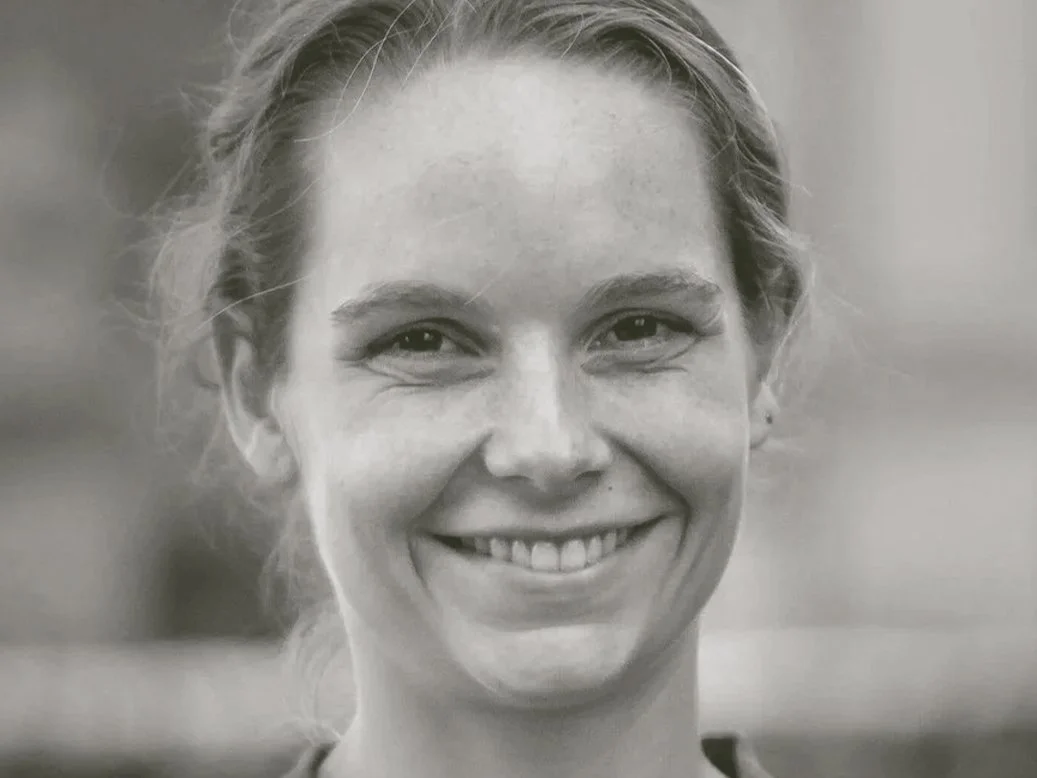
facilitator training
Bring Climate Wayfinding to your campus, learning community, or cultural institution
Most people care about the climate crisis, but many get stuck in overwhelm or burnout and lack pathways from concern to meaningful contribution. Climate Wayfinding changes that. Train with us to facilitate this proven program for anyone grappling with the question “What can I do?”
In 2026, our flagship training will anchor in the forthcoming Climate Wayfinding book and feature a 6-day retreat (August 2–7 at the Omega Institute). If you teach, facilitate, or hold space for climate-centered learning, this training is for you.
Applications for our 2026 training program have closed.
Overview · Agenda · Facilitators · FAQ
2026 Flagship Facilitator Training
In 2026, our flagship facilitator training will anchor in the forthcoming book Climate Wayfinding: Healing Ourselves and the Planet We Call Home by Dr. Katharine Wilkinson.
We will gather for a 6-day retreat at the beautiful and restorative Omega Institute in New York’s Hudson Valley. Participants will take the Climate Wayfinding journey, learning the program experientially.
Then, we will reconvene for an online workshop on our unique facilitation approach and how to bring the program to life. Yearlong access to the Climate Wayfinding curriculum, ongoing support, and facilitator community will follow.
-
6-day, 5-night retreat, August 2–7, 2026, in Rhinebeck, NY
An experiential journey through eight core themes—each a chapter in the Climate Wayfinding book—including plenary sessions and intimate workshops
Lead facilitation by Dr. Katharine Wilkinson and Amy Curtis of The All We Can Save Project
Workshop groups led by seasoned Climate Wayfinding facilitators
Access to Omega’s daily movement and mindfulness programming, including yoga, meditation, and tai chi
Delicious farm-to-table meals and a range of accommodation options (available on a first-come, first-serve basis)
-
One 2-hour session held on Zoom, selected from these dates: August 13, 18, or 20, 2026
An immersion in the approach and pedagogy of Climate Wayfinding and pathways to bringing the program to life on campus or in community
-
Following the online workshop, participants gain access to the full suite of Climate Wayfinding curriculum, resources, and our bespoke tools for assessing impact
-
Access to regular office hours, learning sessions, and one-on-one coaching
Trained facilitators join our growing community of practice and forums
Application and Acceptance Timeline
We are no longer accepting applications for our 2026 training program.
cost
Program fees are generously subsidized and based on the selected accommodation. All include the retreat experience, online training, yearlong access to curriculum, and yearlong support. Scholarships are available.
Private queen room + private bath:
$1,950
Private queen room + bath shared with adjoining room:
$1,650
Private twin room + shared hall bath (5-10 people):
$1,250
Shared double full-size room + private bath:
$950/person
Private twin tent cabin + shared bathhouse:
$950
Assigned campsite + shared bathhouse:
$650
Participants are responsible for travel to/from the Omega Institute. See FAQs for more information on accommodation, travel, and scholarships.
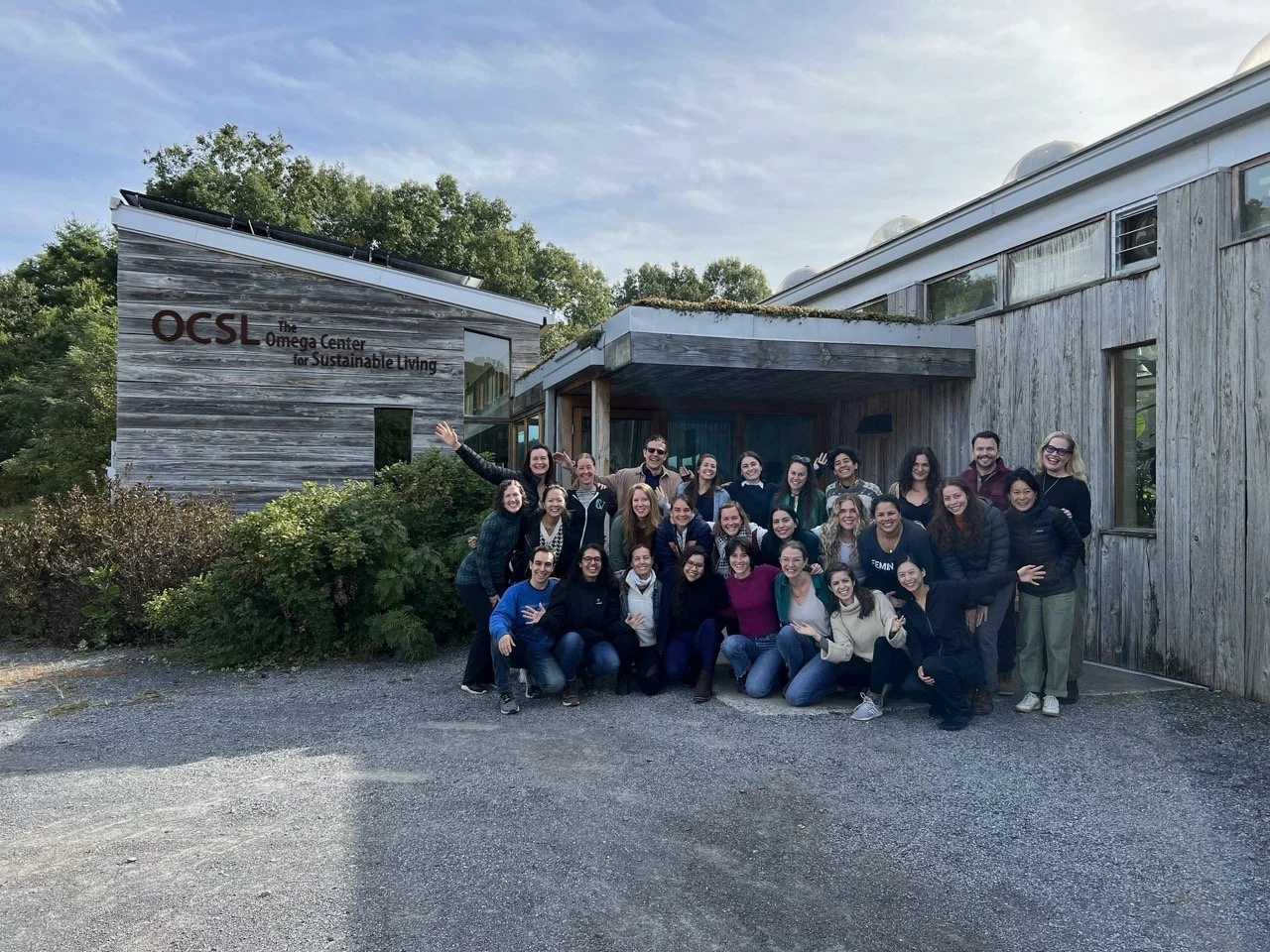
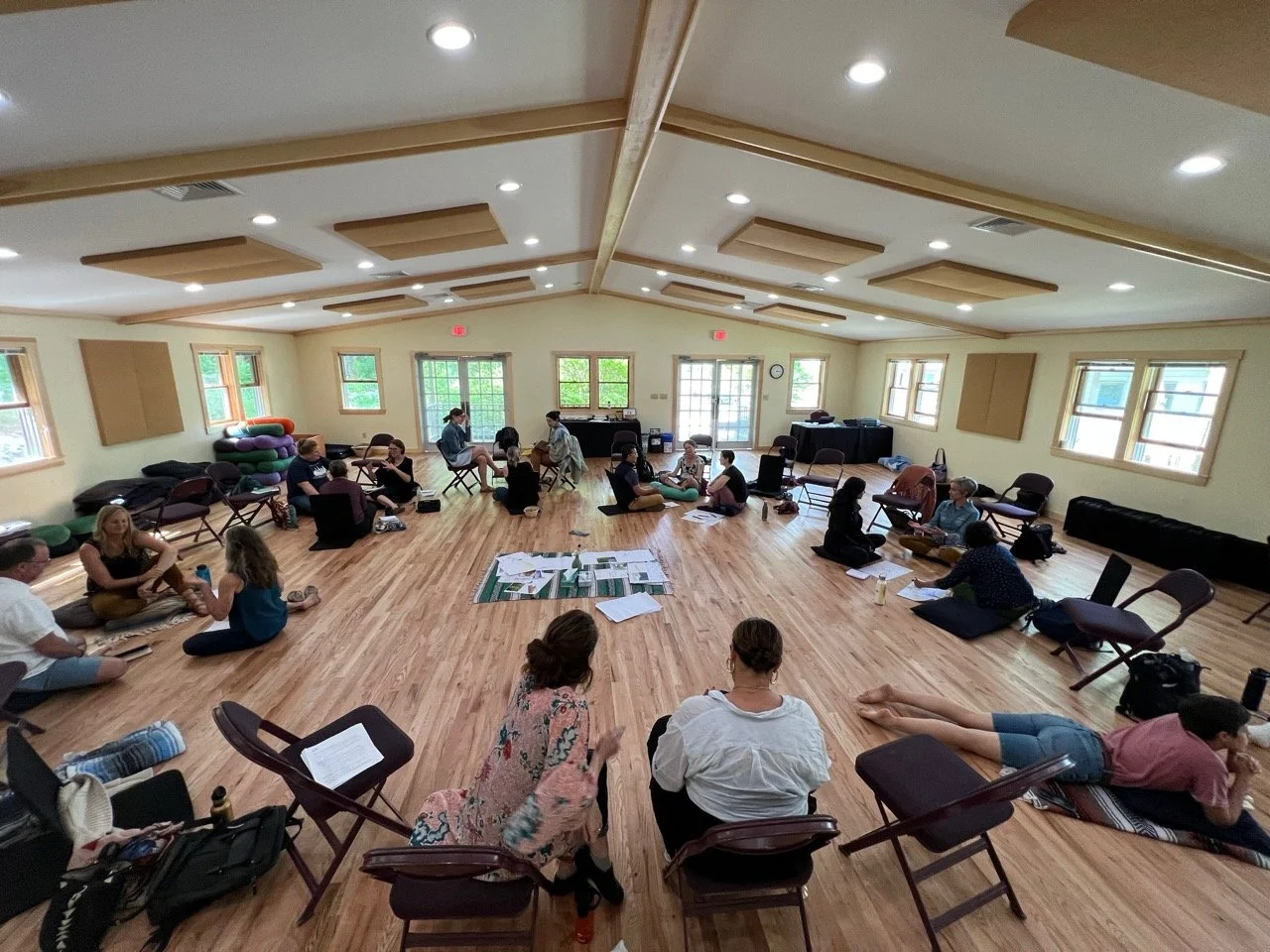
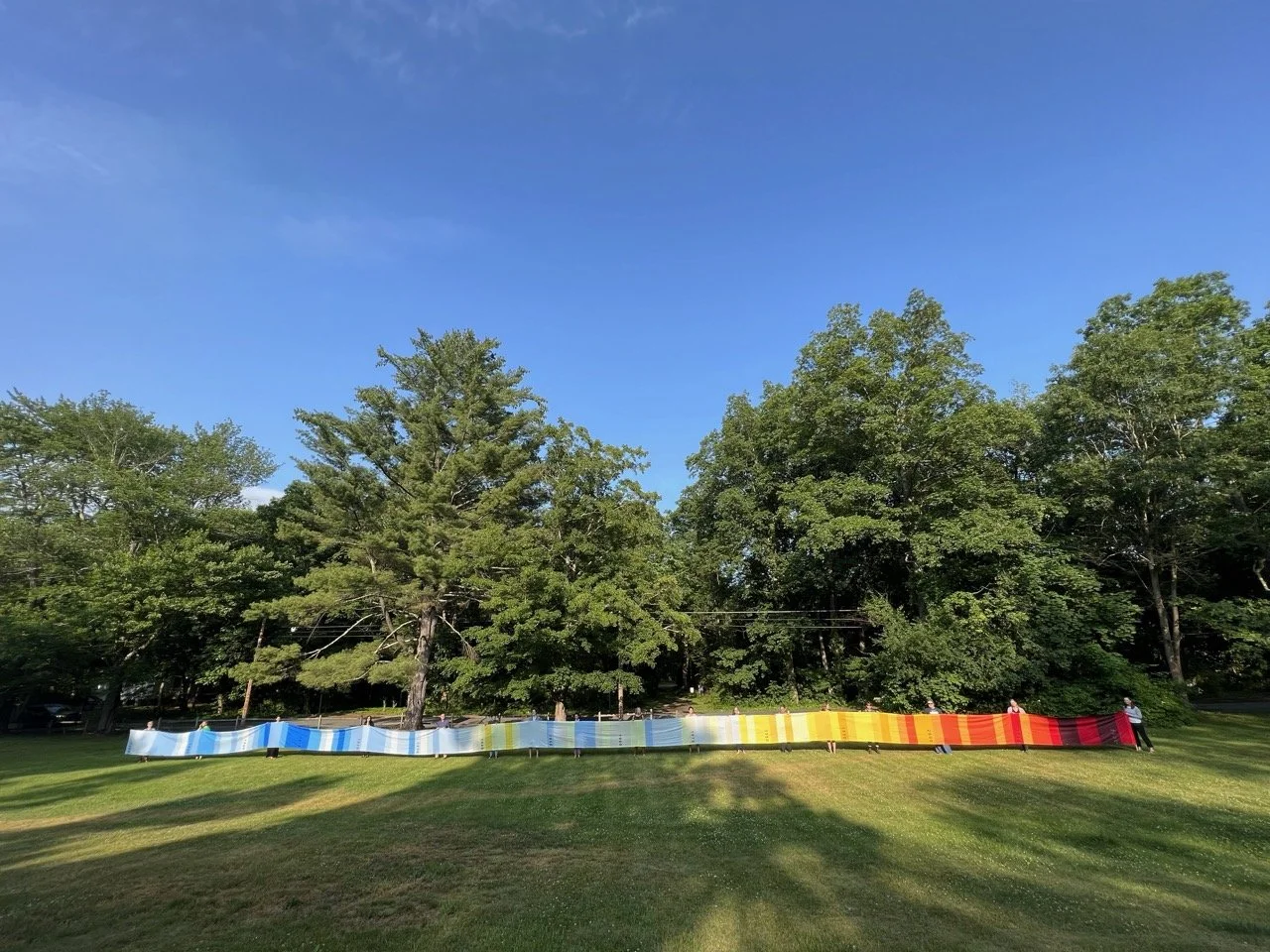
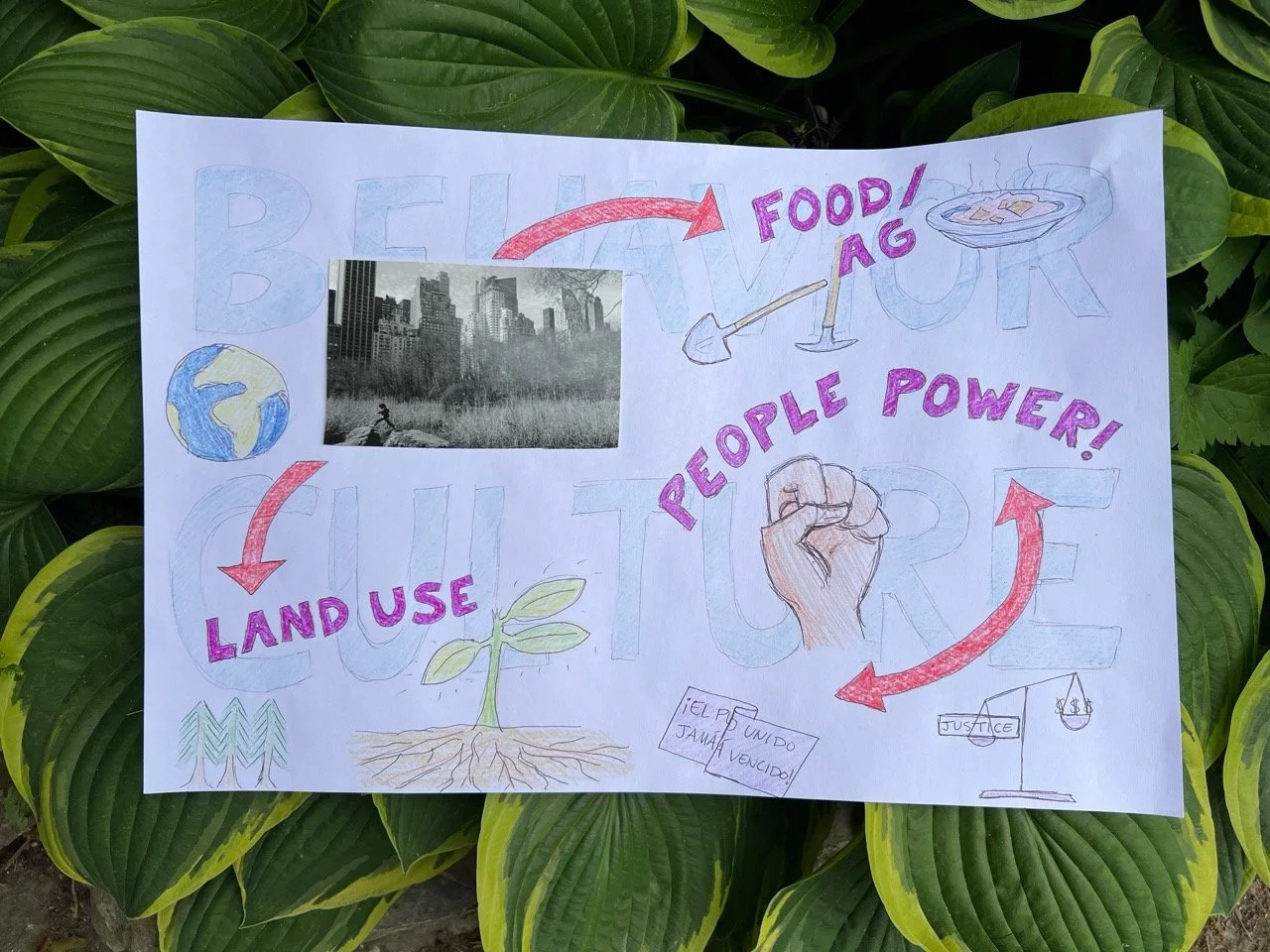

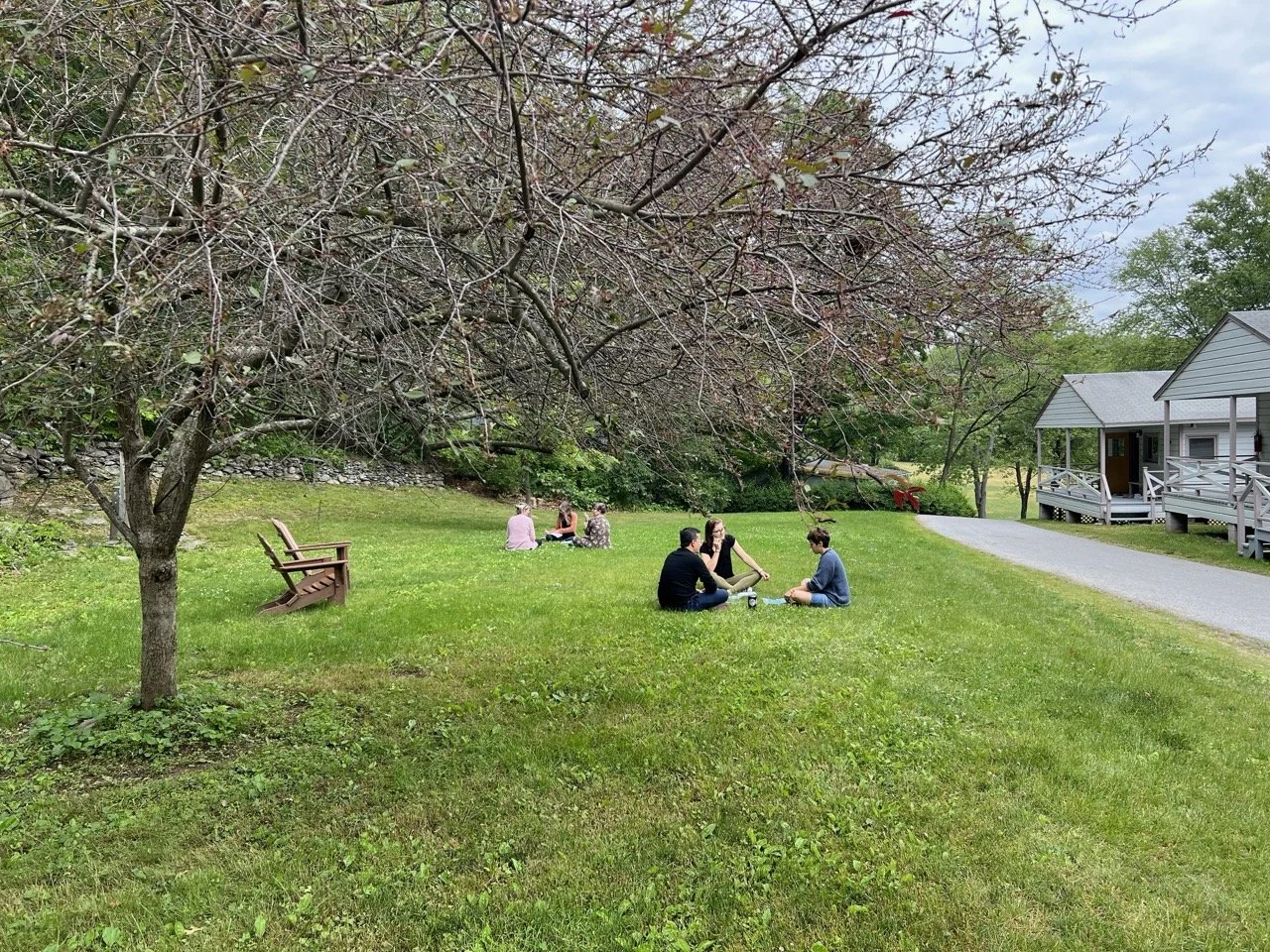
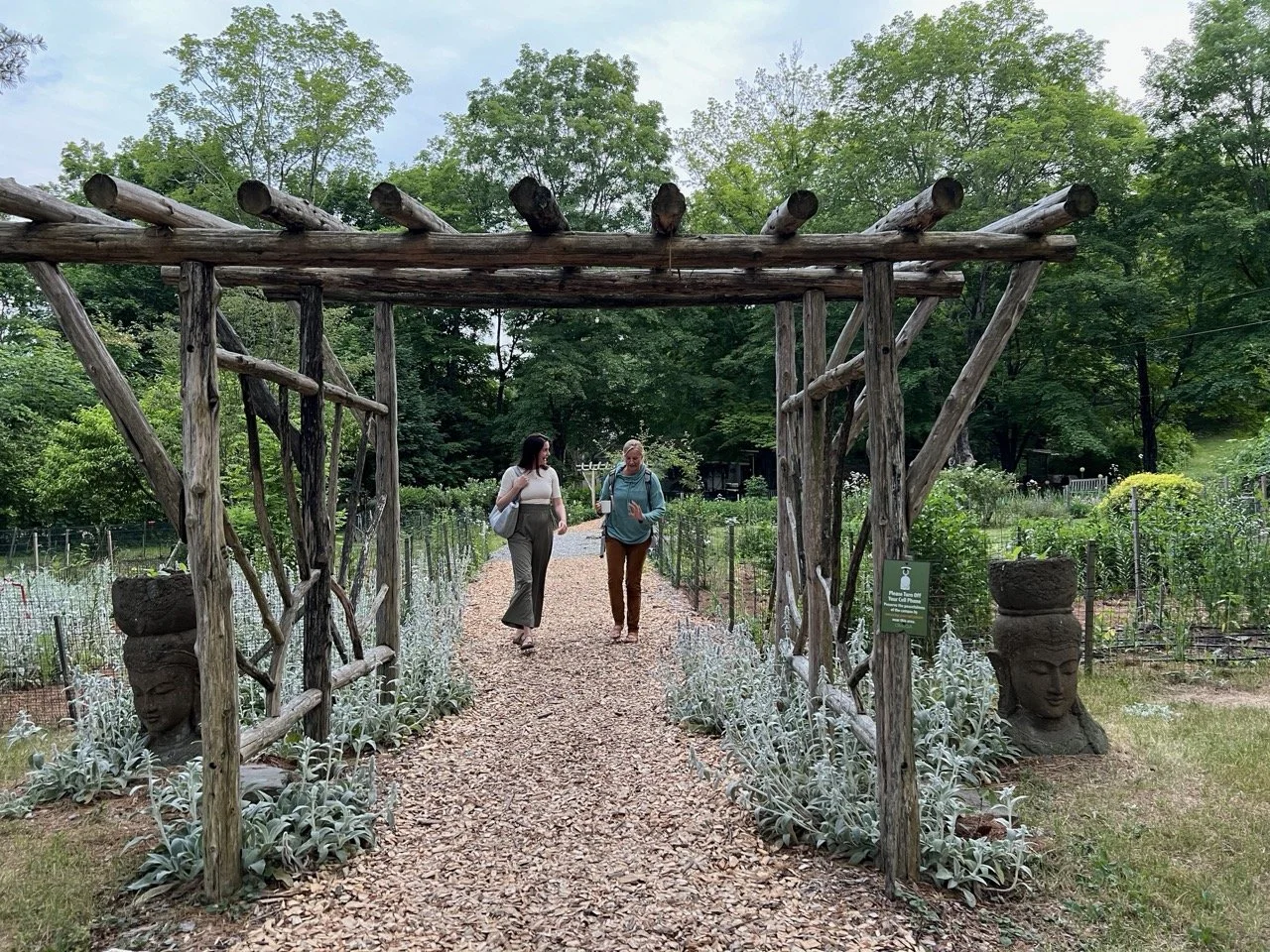
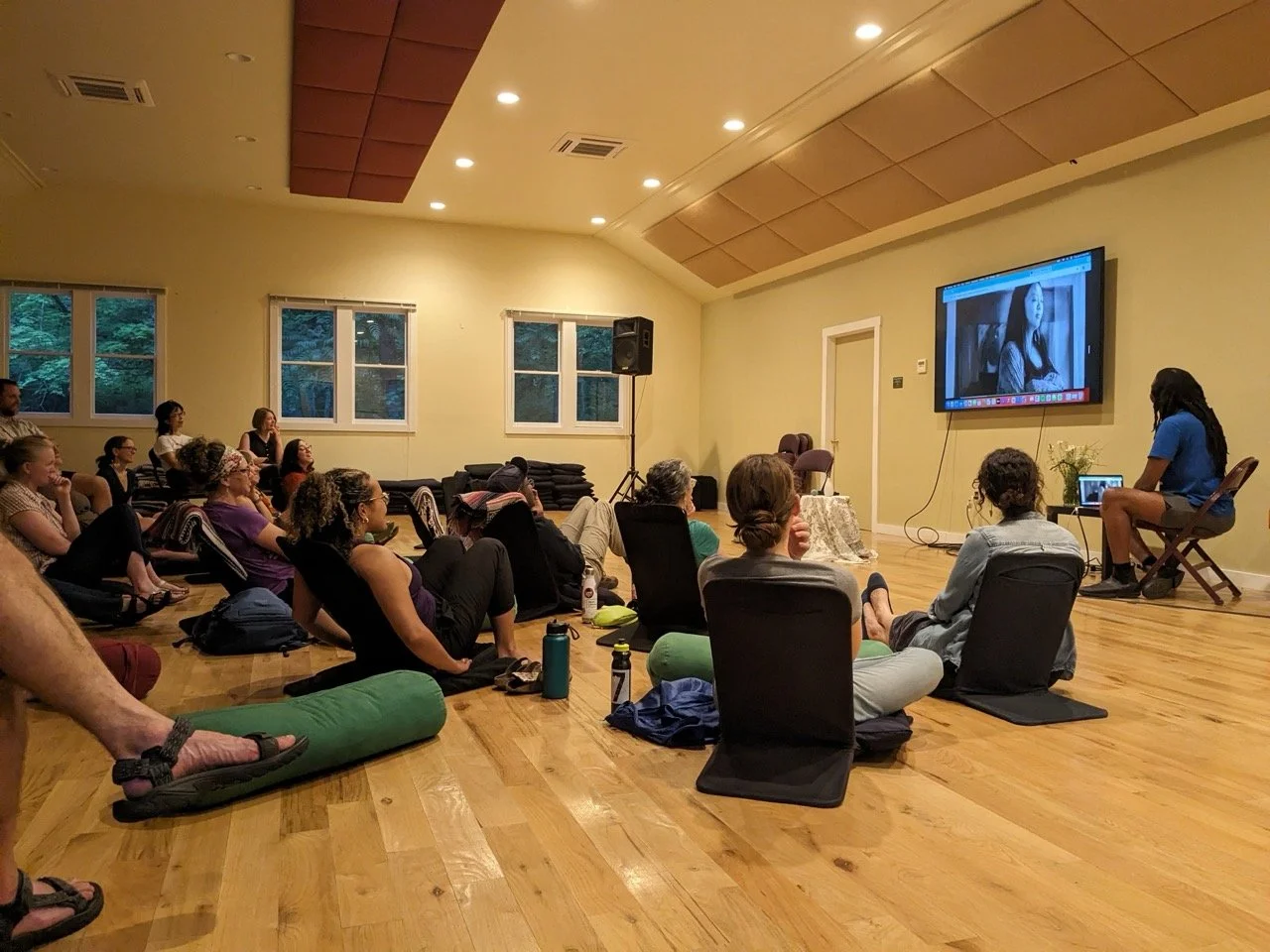
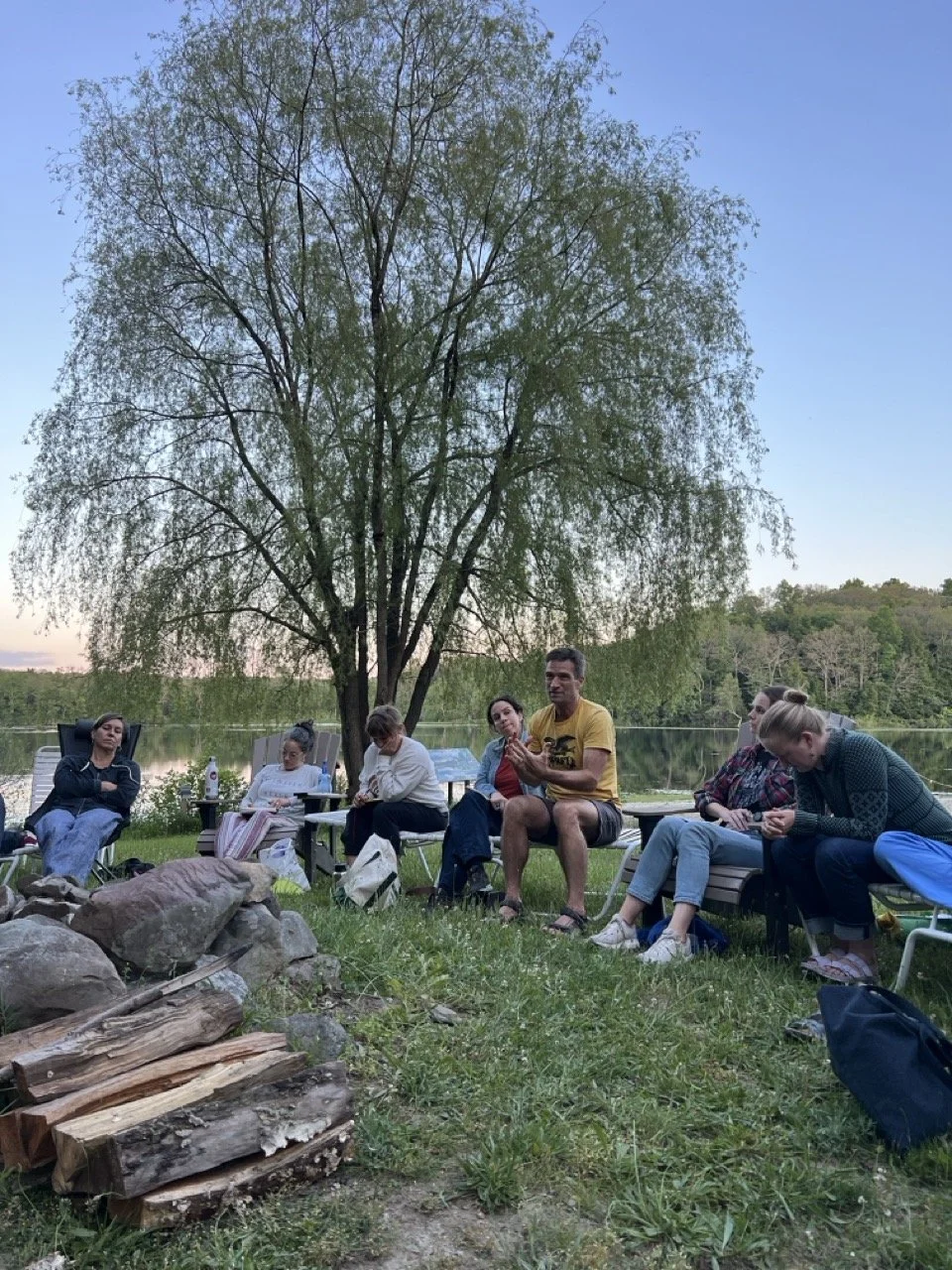
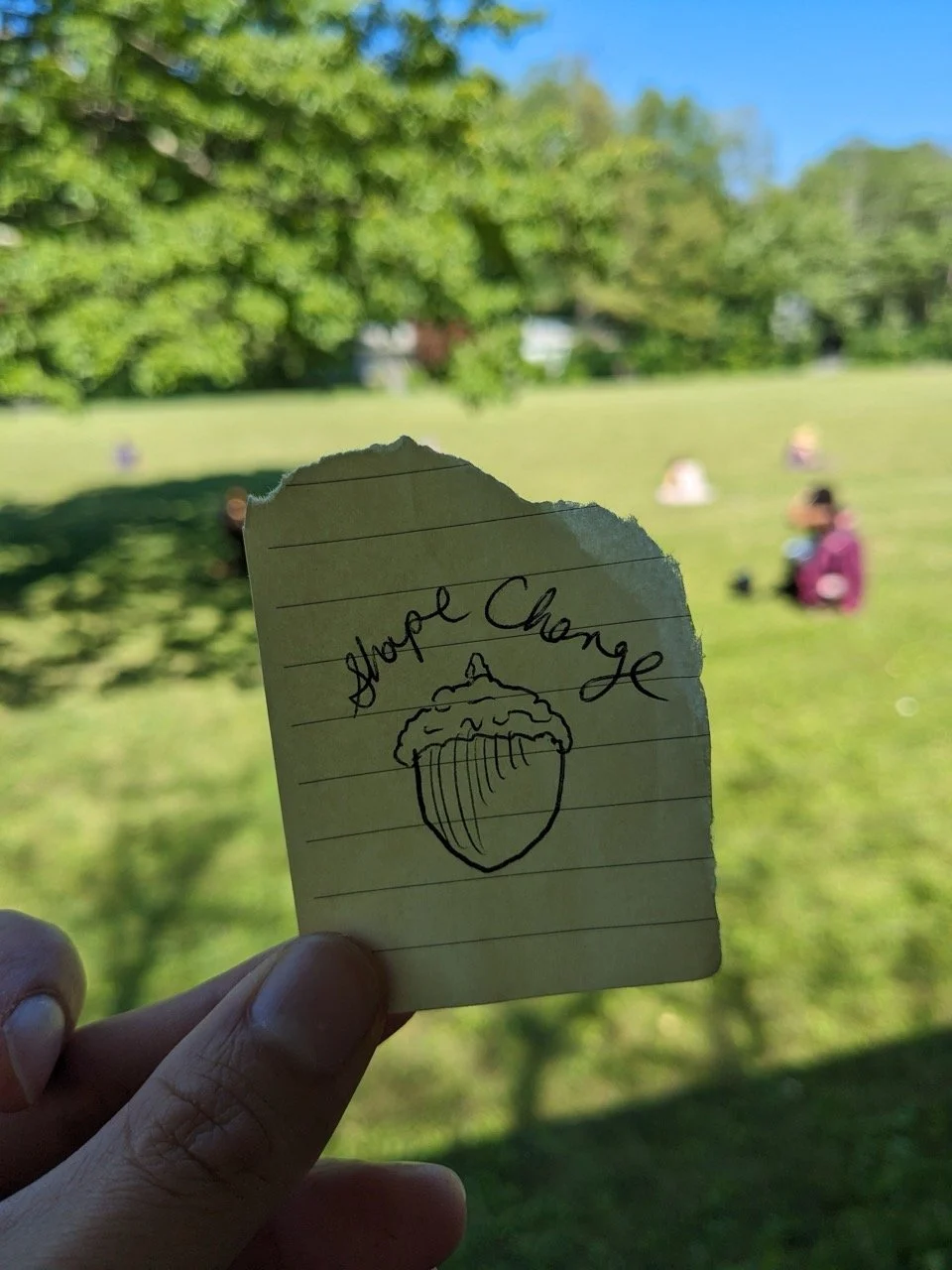
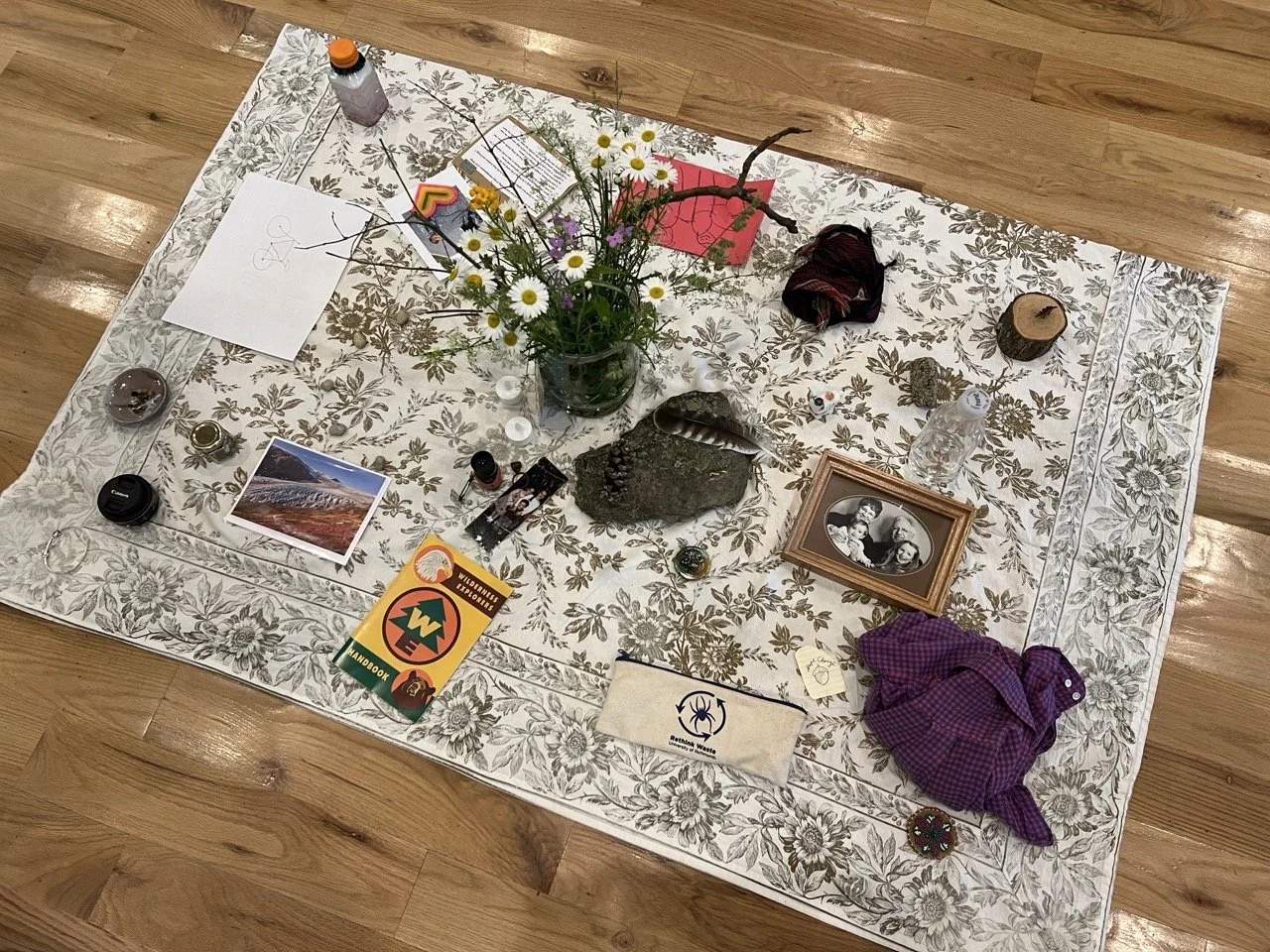
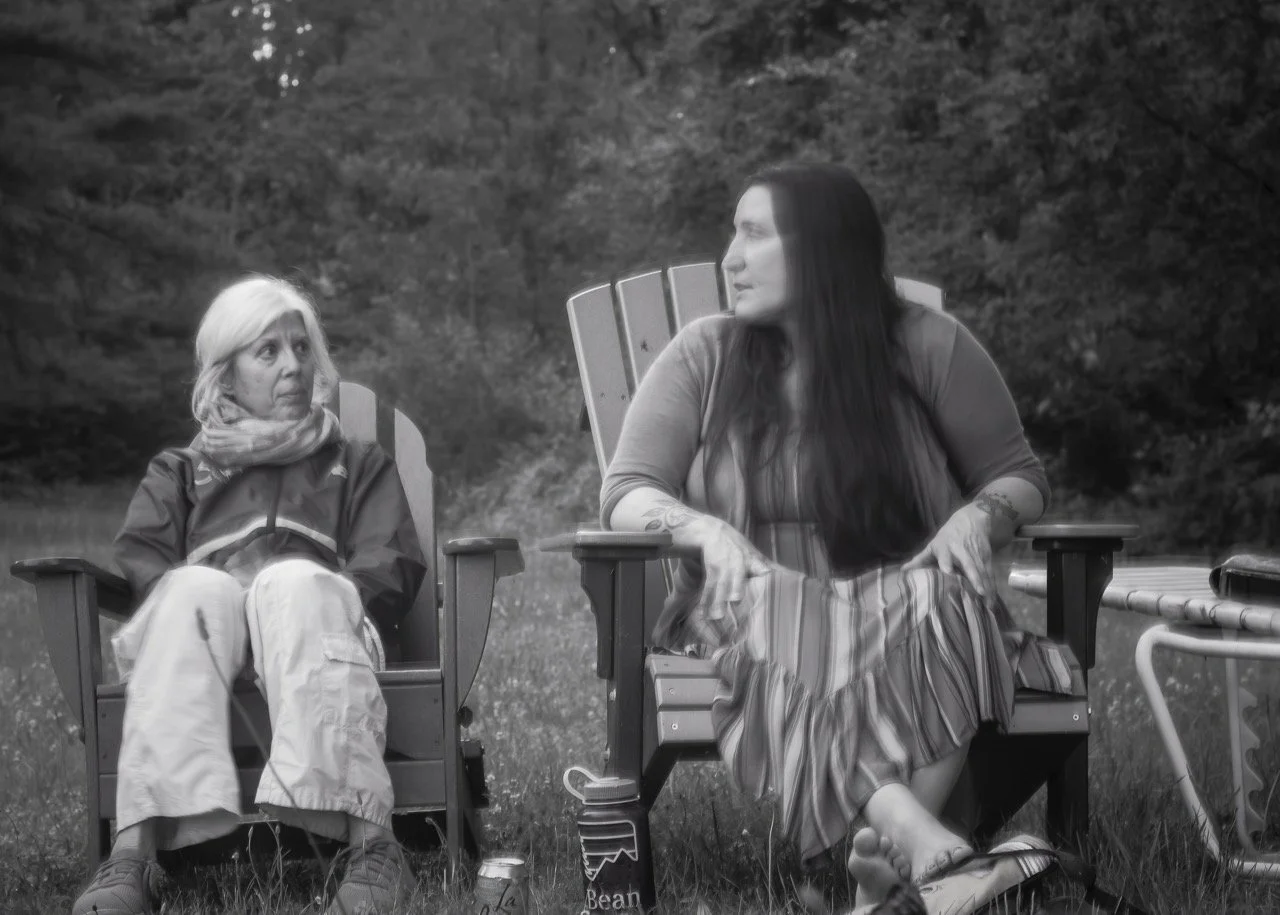
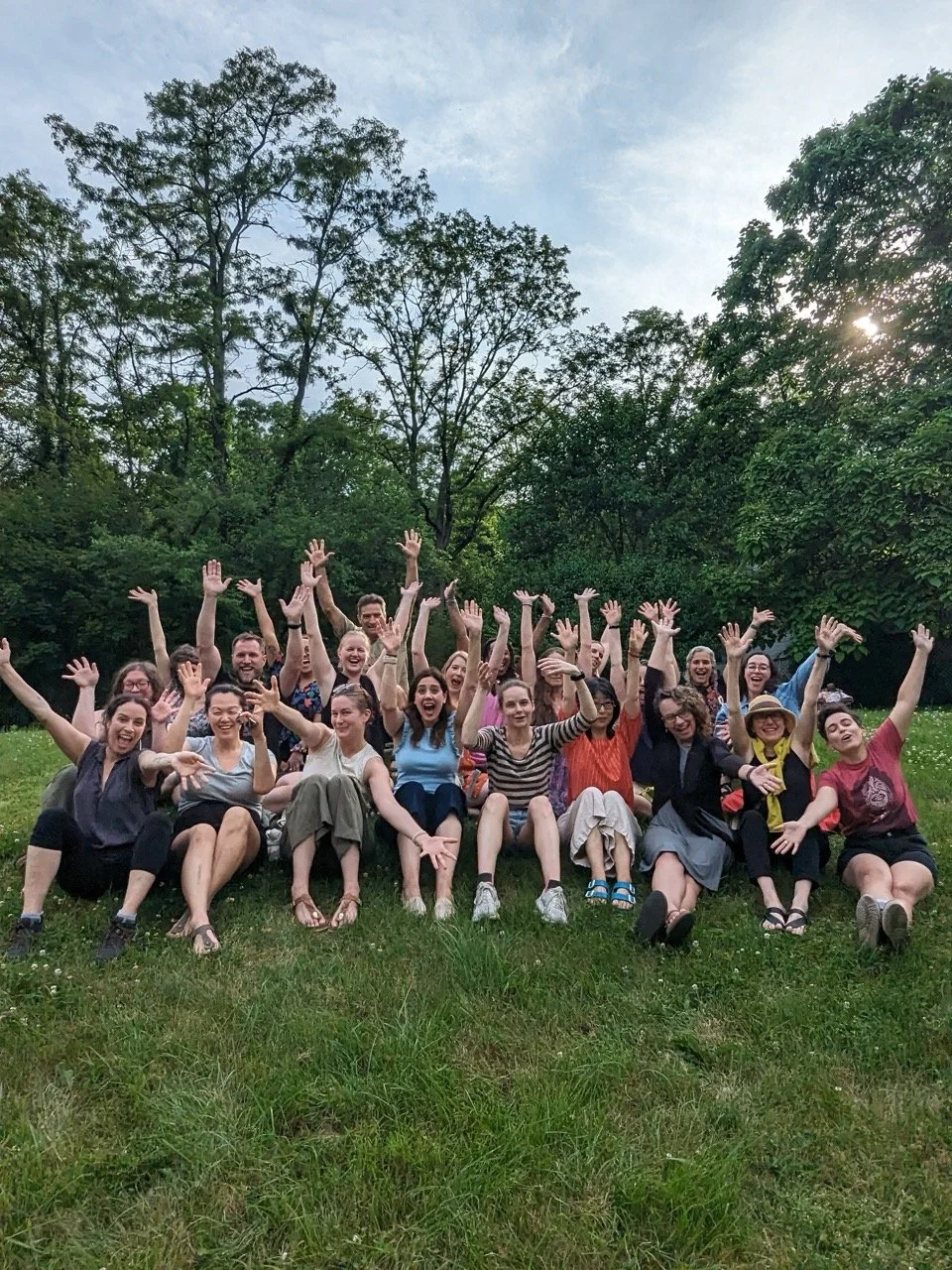
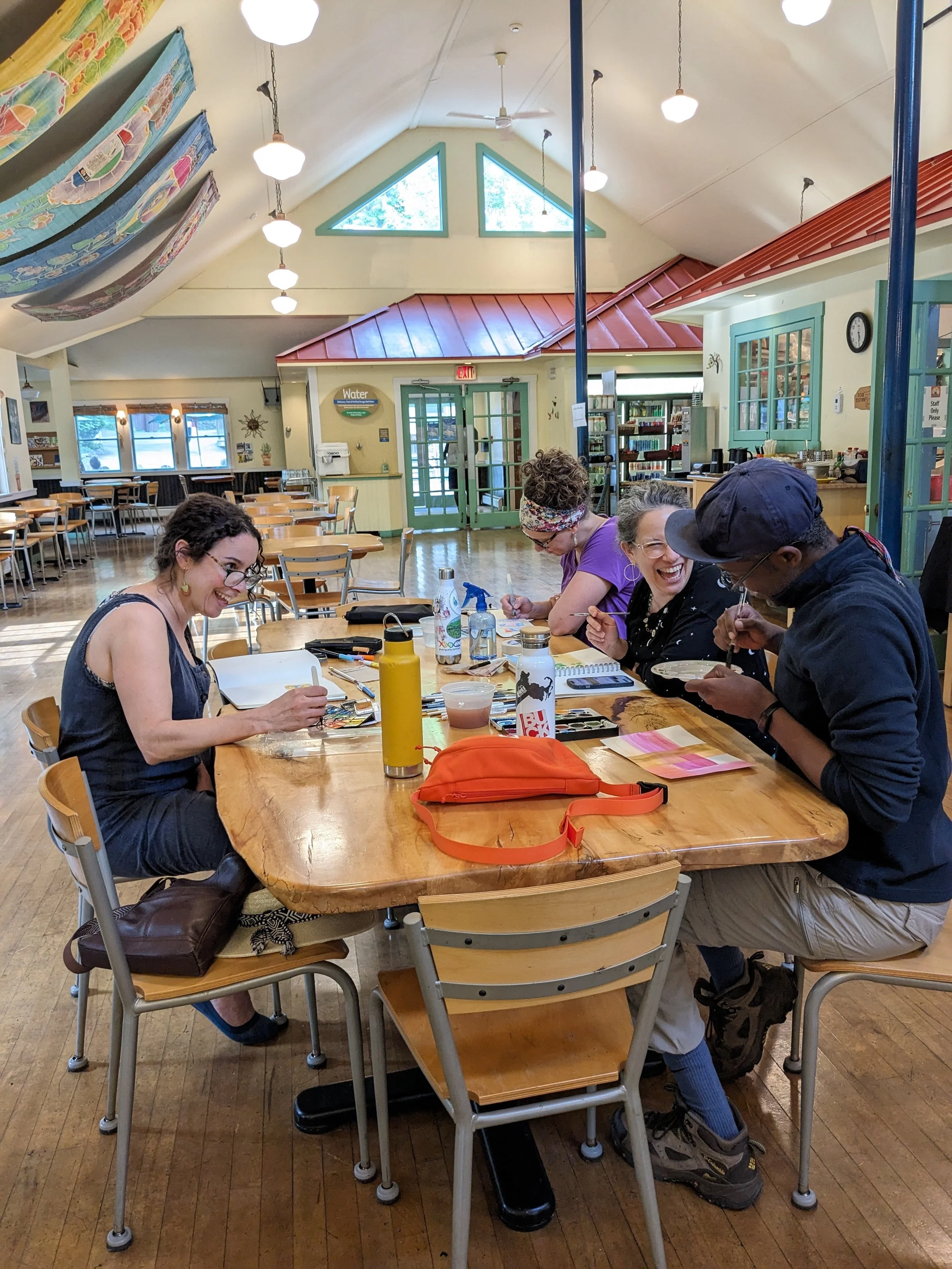
retreat agenda
August 2
Arrivals by 5pm
Opening Session
August 3
Workshop 1: Embarking
Workshop 2: Getting Our Bearings
August 4
Workshop 3: Following Our Emotions
Workshop 4: Surfacing Solutions
Evening Experience with Special Guest
August 5
Open Morning
Workshop 5: Offering Our Superpowers
Evening of Creative Offerings
August 6
Workshop 6: Connecting with Community
Workshop 7: Orienting with Vision
Evening Experience with Facilitators
August 7
Workshop 8: Journeying Onward
Departures by 1pm
Daily: farm-to-table meals, morning and afternoon mindfulness/movement classes, and access to Omega’s lush 250-acre campus and trails.
Program Facilitators
Lead Facilitators
Dr. Katharine Wilkinson
Co-founder & Executive Director of The All We Can Save Project
Learn MoreAmy Curtis
Head of Programs at The All We Can Save Project
Learn MoreCo-facilitators
Minna Brown
Climate Action Program Director at Middlebury College
Learn MoreLaura England
Director of Academic Sustainability Initiatives at Appalachian State University
Learn MoreParren Fountain
Engagement Manager, Sustainability at Boston University
Learn MoreJulia Kim-Cohen
Senior Lecturer at University of Illinois Chicago
Learn MoreSunshine Menezes
Clinical Professor of Environmental Communication at University of Rhode Island
Learn MoreAbby Schroering
Education Consultant & Assistant Director of Graduate Student Programs and Services at Columbia’s Center for Teaching and Learning
Learn MoreCommunity of Practice
We’ve trained educators from colleges and universities across the U.S. and Canada.
They are now bringing the program to life in a range of formats and disciplines—inside the classroom and beyond.
-
Agnes Scott College ✚ Appalachian State University (3) ✚ Aquinas College ✚ Bennett College ✚ Boston College ✚ Boston University ✚ Brandeis University ✚ California State Polytechnic University Humboldt ✚ California State University, Los Angeles ✚ Carleton University (2) ✚ Champlain College ✚ City College of New York ✚ Clark University ✚ College of New Jersey ✚ Columbia University ✚ Concordia University ✚ Dance Exchange ✚ Duke University ✚ Elon University (2) ✚ Emerson College ✚ Fashion Institute of Technology ✚ Georgia Institute of Technology ✚ Hampshire College (2) ✚ Harvey Mudd College ✚ Ithaca College ✚ Lincoln University ✚ Loyola University Chicago ✚ Massachusetts Institute of Technology (2) ✚ McDaniel College ✚ McGill University (3) ✚ McMaster University ✚ Middlebury College ✚ Minerva University ✚ Old Dominion University ✚ Ontario College of Art & Design University (2) ✚ Pomona College ✚ Royal Roads University ✚ Rutgers University ✚ Selkirk College ✚ Sewanee: The University of the South ✚ Sheridan College ✚ Simon Fraser University (3) ✚ St. Mary’s College of Maryland ✚ Stanford University ✚ Stony Brook University ✚ SUNY College of Environmental Science and Forestry ✚ Swarthmore College ✚ The City College of New York/The City University of New York ✚ The New School ✚ University of Alaska Fairbanks ✚ University of British Columbia (2) ✚ University of Delaware ✚ University of Denver (2) ✚ University of Guelph ✚ University of Illinois Chicago ✚ University of Michigan ✚ University of Mississippi ✚ University of New Hampshire ✚ University of North Carolina Chapel Hill (2) ✚ University of North Carolina Greensboro ✚ University of Oregon ✚ University of Ottawa ✚ University of Rhode Island ✚ University of Richmond ✚ University of San Francisco ✚ University of South Carolina ✚ University of Southern Maine ✚ University of Tampa ✚ University of Toronto Scarborough ✚ University of Vermont ✚ University of Victoria ✚ University of Virginia ✚ University of Washington Bothell ✚ University of Wyoming ✚ Vanderbilt University ✚ Vassar College ✚ Wake Forest University (3) ✚ Warren Wilson College ✚ Winona State University ✚ Xavier University of Louisiana ✚ Yale University
What Facilitators Are Saying…
FAQs
-
To participate in our facilitator training, you must teach, facilitate, or hold space for climate-centered learning on a college campus, in a cultural institution, or within a community or organization. You must also feel committed to facilitating Climate Wayfinding—whether through a course, workshop series, co-curricular offering, or community initiative—during the year following the retreat. (We’ll get you ready to do just that!)
For those teaching in higher education, it’s helpful (though not required) to already be engaging with climate-related themes in your classroom or programs. We warmly welcome applications from faculty across disciplines, as well as staff working in student affairs, counseling and psychological services, sustainability offices, career development, and beyond. Educators from cultural institutions, community-based organizations, and other learning spaces are also encouraged to apply.
All career stages are welcome.
-
We believe higher education and cultural institutions have central roles to play in healing the climate crisis. Campuses are training grounds for emerging changemakers, and every day faculty and staff are helping to grow and strengthen the climate community. Cultural institutions serve as vital spaces for community engagement, learning, and reflection. By training educators and facilitators from these institutions as Climate Wayfinding facilitators, this program will be able to reach thousands of climate-concerned people grappling with the question “What can I do?”
We also know that many professionals in higher education and cultural institutions are seeking renewal, deeper connection, and a space to clarify their own unique climate contributions. Our experiential approach to training ensures the benefits of Climate Wayfinding reach facilitators first, then ripple out to their campuses, communities, and organizations. We all need support for navigating this liminal time.
-
Trained facilitators are equipped to bring Climate Wayfinding to life within their institutions or communities—and to do so in ways that will resonate in a given context. Depending on the specifics of your role and organization, this could take a variety of forms.
Faculty might thread Climate Wayfinding into existing courses or create new courses (e.g., full semester, summer, or J-term). Staff or faculty might run Climate Wayfinding as immersive workshops or thread elements of Climate Wayfinding into existing co-curricular programs. Educators in cultural institutions or community-based organizations might offer Climate Wayfinding as a workshop series or integrate it within existing programming.
We know that every campus and learning community operates differently. Part of the magic of Climate Wayfinding is in the ways facilitators meet the needs of particular participants in a particular place. Our curriculum and ongoing support are designed to make that possible.
-
Over the last three years, we have seen transformational results for Climate Wayfinding participants, who develop key capacities to navigate this challenging, liminal time and make their best contributions. Every cohort has experienced positive growth across the 8 Dynamics of Climate Engagement, which is our core framework for tracking what shifts over the course of the program. After completing the program, participants overwhelmingly express feeling greater clarity and focus, as well as a deeper sense of purpose and motivation. Many move from ache to action and from doubt to a sense of possibility.
When we asked students what they gained from Climate Wayfinding, this is some of what they shared:
“You learn what motivates your climate action in a really heart-centered way.”
“You learn not to be scared of your heavy climate emotions, but to embrace them and let them guide you to catalyze change.”
“You learn about your own skills based on what comes naturally and feels authentically you. You learn to follow and trust what feels energetically true.”
“You learn that connecting with a climate community can help combat the self-isolation that often accompanies climate doom.”
-
The purpose of this training is to equip facilitators to deliver the Climate Wayfinding content and experience to climate-concerned students or community members. That begins with encountering it first as a participant and gaining “navigational” practices, frameworks, and resources for your own climate journey. Then, you will learn about our facilitation approach, begin to try it out, and get introduced to the digital resource hub that will support bringing Climate Wayfinding to life in your institution or community. Taken together, we hope you’ll depart the training feeling personally nourished and renewed by Climate Wayfinding and professionally energized and prepared to expand its reach to anyone who is seeking clarity, courage, and community on their climate journeys.
-
After the in-person retreat, all facilitators will gain access to a digital resource hub with the full Climate Wayfinding curriculum, including:
how-to guides for bringing Climate Wayfinding to life through a range of modalities (e.g., full semester or short course, workshop series, immersive retreat, or threaded into an existing course or program);
detailed agendas, facilitator notes, and slides for all Climate Wayfinding sessions (designed for modularity);
a suite of supporting materials (e.g., audio content, music playlists, writing prompts, discussion questions, and curated materials for participants to read, watch, and listen to);
bespoke tools for assessing impact.
In addition to the digital hub, our team will provide a full year of coaching and support. This includes access to regular office hours, learning sessions, and one-on-one coaching. Trained facilitators also join our growing community of practice and forums, connecting with kindred practitioners to share resources, ideas, and best practices.
-
Yes, thanks to the generous support of donors, we have scholarship funds to support individuals who are a great fit for the program but for whom the cost is prohibitive. We will make every effort to accommodate scholarship requests, but we encourage you to first explore options for support from your institution. You’ll be invited to share your scholarship request in the application.
Please note: Scholarships do not cover travel expenses to/from Omega. -
For the retreat at Omega, a range of accommodation options are available on a first-come, first-serve basis, with program fees varying by selection:
$1,950 — Private room (queen bed) + private bath
$1,650 — Private room (queen bed) + bath shared with adjoining room
$1,250 — Private room (twin bed) + hall bath (shared by 5-10 people)
$950* — Shared double room (2 full-size beds for 2 people) + private bath
*cost per person
$950 — Private tent cabin (twin bed) + shared bathhouse
$650 — Assigned campsite + shared bathhouse
Included with every option are delicious farm-to-table meals, daily movement and mindfulness classes, and access to gardens, nature trails, and waterfront on Omega’s 250-acre campus.
You can see pictures and learn more about each room type here.
-
Omega is conveniently located just 90 miles north of New York Cityat 150 Lake Drive, Rhinebeck, NY 12572. It is easily accessible by car, train, or bus, and there are a number of airports in the area. Detailed transportation options are available on Omega’s website here.
Participants are responsible for travel to/from the Omega Institute, but our team will support carpool coordination among participants.
-
Our aim is to make Climate Wayfinding as generously and widely accessible as possible and to do so with mission-aligned partners. We recognize that running the program may have associated costs. If your institution cannot cover those, you may charge a nominal fee to pay for refreshments, supplies, and/or meeting space. But neither you nor your institution should profit from Climate Wayfinding. If you have specific questions about this, please send us an email at info@allwecansave.earth.
-
Applications for our 2026 Facilitator Training will close on Thursday, December 11, and final admission decisions will be communicated to all applicants by December 18.
We review and admit applicants on a rolling basis, so you may hear back before the final decision date. Since accommodations are offered on a first-come, first-served basis, applying early increases your chances of securing your preferred room type.
If we have any follow-up questions about your application, a member of our team may reach out to schedule a brief 15-minute interview.
-
Nope! Over the last two years, we have successfully trained nearly 100 facilitators at 77 colleges and universities. Climate Wayfinding is now being implemented at dozens of institutions across the U.S. and Canada.
This 2026 training marks a special evolution of the program—it will be our largest training yet and the first time we’ll open the program to educators beyond higher education, welcoming facilitators from cultural institutions and community-based organizations. It will also be the first time we’ll be joined by an exceptional group of experienced Climate Wayfinding facilitators who will help lead workshop sessions alongside members of The All We Can Save Project team.
-
While we’re so delighted you want to continue learning with us, this particular training is intended for those who haven’t yet participated in a Climate Wayfinding facilitator training.
That said, we’re thrilled to share that we’re dreaming about a new experience designed specifically for Climate Wayfinding facilitators to reconvene and continue learning from each other — stay tuned for more on that!
-
This will likely be the only facilitator training in 2026. If this training isn’t a fit for you, please complete our Climate Wayfinding interest form and sign-up for The All We Can Save Project’s monthly newsletter to learn when future programs are announced.


Support Our Work
Climate Wayfinding is a nonprofit program of The All We Can Save Project.

